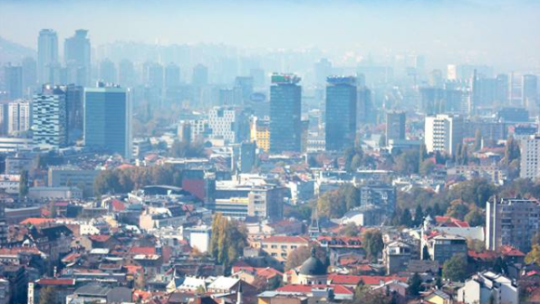
Croatia's Foreign and European Affairs Minister Gordan Grlic Radman has called on political representatives of Bosnia and Herzegovina's three main ethnic groups to change the country's election law, claiming that its current provisions are detrimental to local Croats.
Grlic Radman made the statement during a visit to Mostar on Monday, noting that current election legislation made it possible to impose political representatives on local Croats.
“Bosnia and Herzegovina's future depends on an agreement between Serbs, Croats and Bosniaks. Their leaders should reach agreement on the country's future, and here we have an election law that is detrimental to the Croat people and it should be changed,” Grlic Radman told reporters before delivering a lecture at Mostar University on the 25th anniversary of the Dayton peace agreement.
“Croatia strongly advocates the implementation of all rulings of the Constitutional Court and amendment of the election law so that all three peoples and other citizens are enabled to elect their own representatives at all levels of government. The country's three-member Presidency was intended to reflect the result of voting for representatives of individual peoples, which now is not the case. We want that to change and we want the spirit of the Dayton agreement and its provisions to be respected as agreed 25 years ago,” said the minister.
The Croat National Assembly (HNS) of Bosnia and Herzegovina, which brings together the biggest Croat political parties in Bosnia and Herzegovina, has been organising lectures, panels and other events to mark the 25th anniversary of the Dayton peace agreement, which was signed after three-week negotiations on 21 November 1995 in Dayton, Ohio, and which put an end to the war in Bosnia and Herzegovina.
In the 2018 elections Zeljko Komsic was elected the Croat member of the Presidency of Bosnia and Herzegovina mostly owing to the votes of Bosniaks who are three and a half times more numerous than local Croats.
“It is necessary to ensure that each of the peoples feels at home in this beautiful country, able to exercise its own rights and elect its own representatives. If we in Croatia keep hearing that Croats in Bosnia and Herzegovina are dissatisfied, then something must not be right,” said the minister.
He noted that Croatia strongly advocated Bosnia and Herzegovina's Euro-Atlantic journey and that it wanted a stable, functioning and prosperous Bosnia and Herzegovina.
“It is very important that Bosnia and Herzegovina reflects the general provisions and spirit of the Dayton Accords and Annex IV of the Constitution of Bosnia and Herzegovina, which is the basic legal document regulating the status of Bosniaks, Croats and Serbs as constitutent peoples and their equality,” he said.
Grlic Radman also met with the leadership of Mostar University today, who thanked Croatia for its support to the university.




